Education Adult TCKs & Mental Health
We prioritize research so that...
- Caregivers better understand the needs of the TCKs they care for and therefore build effective programs and support systems.
- Adult TCKs feel seen in their stories, knowing they are not alone and there is hope for thriving.
Education Adult TCKs & Mental Health:
First Look at the 2024 Research
Click on these buttons to scroll down the page to specific sections.
We have labeled this sector "Education & Other Work" to acknowledge that educators were the majority of those who chose to work abroad.
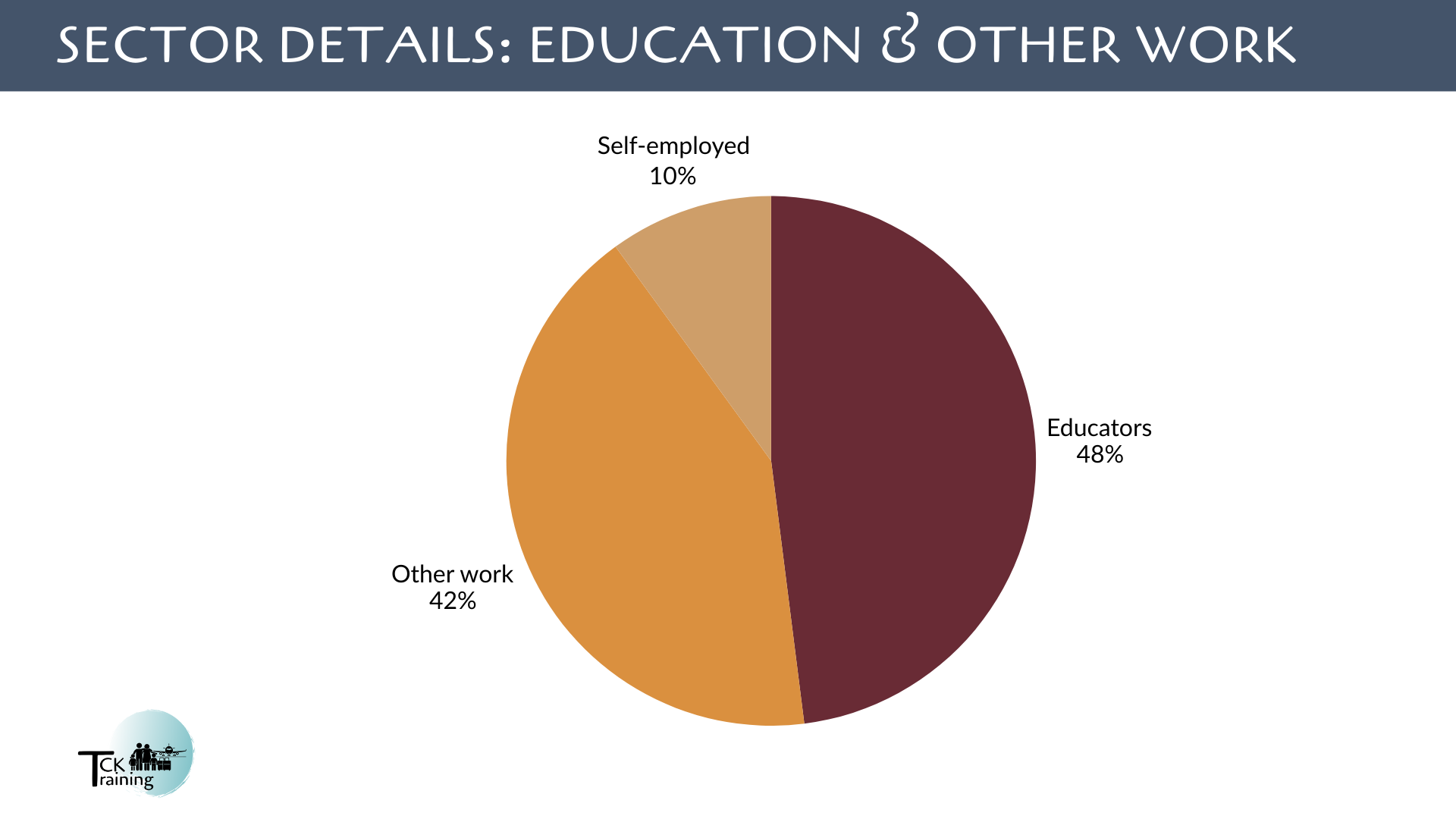
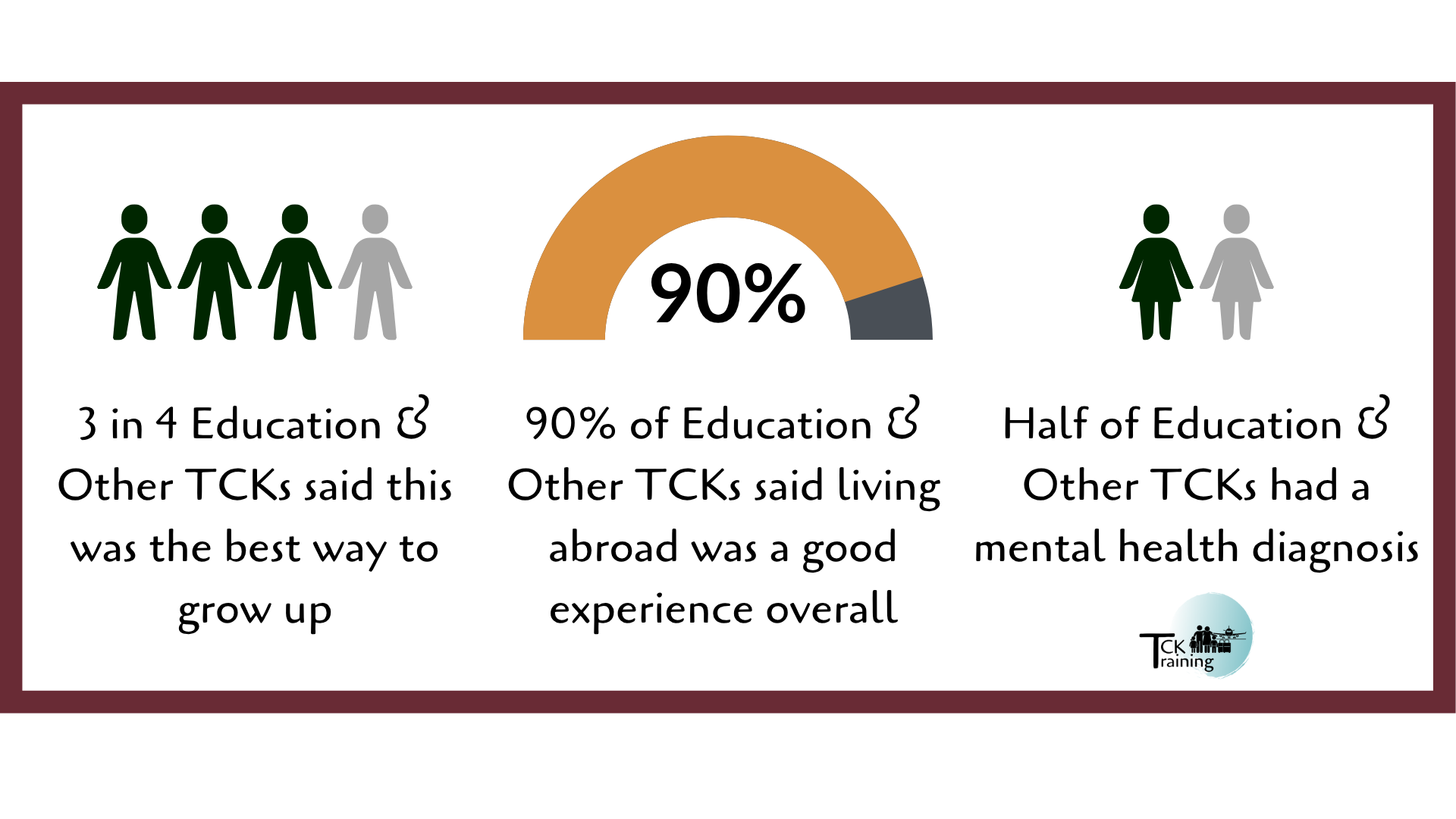
Views of Childhood
- 97% of Education & Other TCKs could see both good and hard parts in their story.
- 90% of Education & Other TCKs said living internationally as a child was a good experience overall.
- 77% of Education & Other TCKs said this was “the best way to grow up”.
- 61% of Education & Other TCKs said living abroad made their family closer.
20% of Education & Other TCKs said their experience was “mostly painful” which was similar to what we saw in other sectors. It is important to remember that the majority of Education & Other TCKs said they could see both good and hard parts in their story, and that living overseas was a good experience overall.
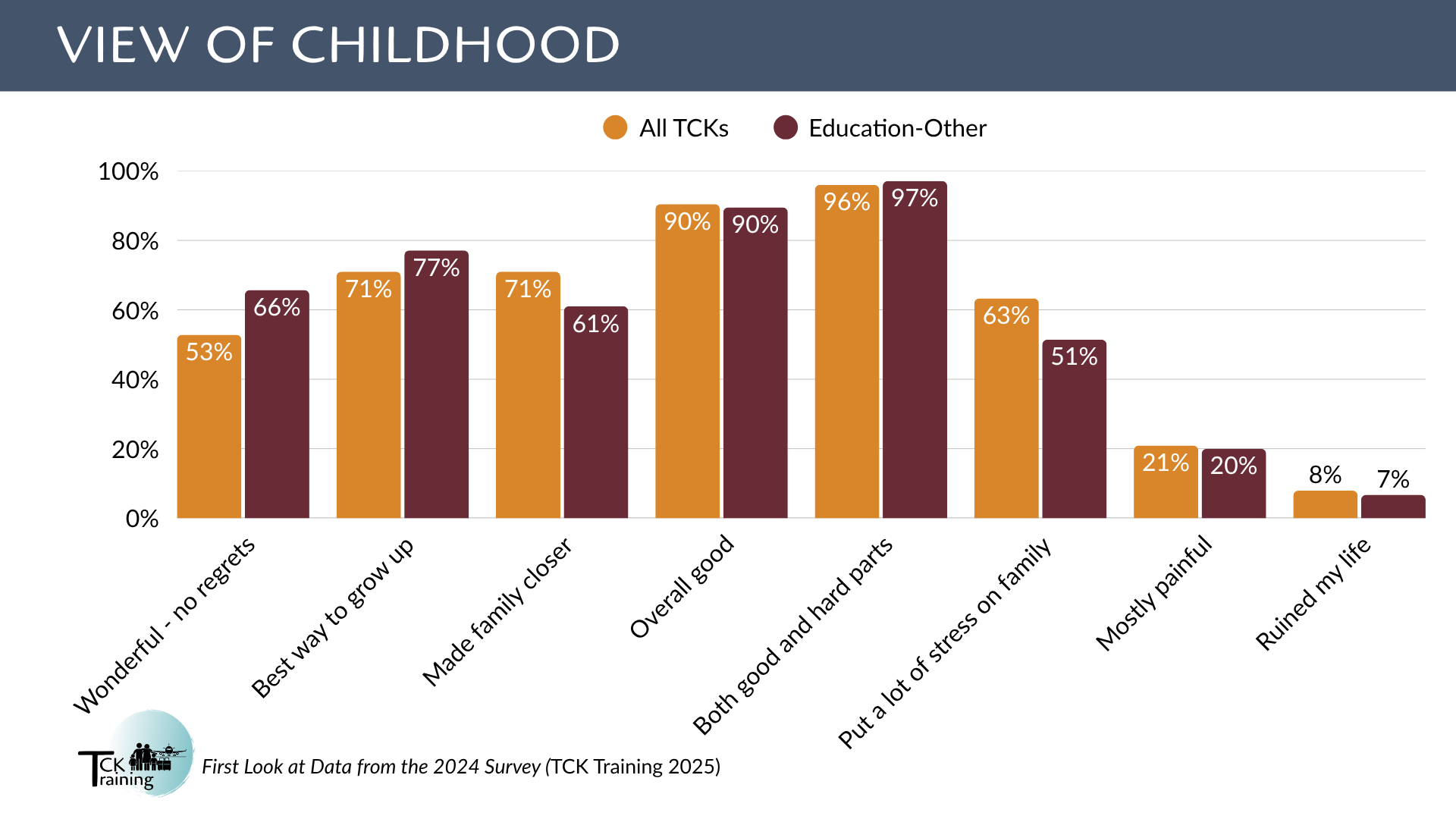
There seemed to be benefits to this 'disconnect' from parents' occupation. Education & Other TCKs were less likely to feel pressure to "perform" while visiting their passport country (36%), pressure to be "perfect" while living abroad (31%), or fear that misbehavior on their part would cause their family's departure (18%).
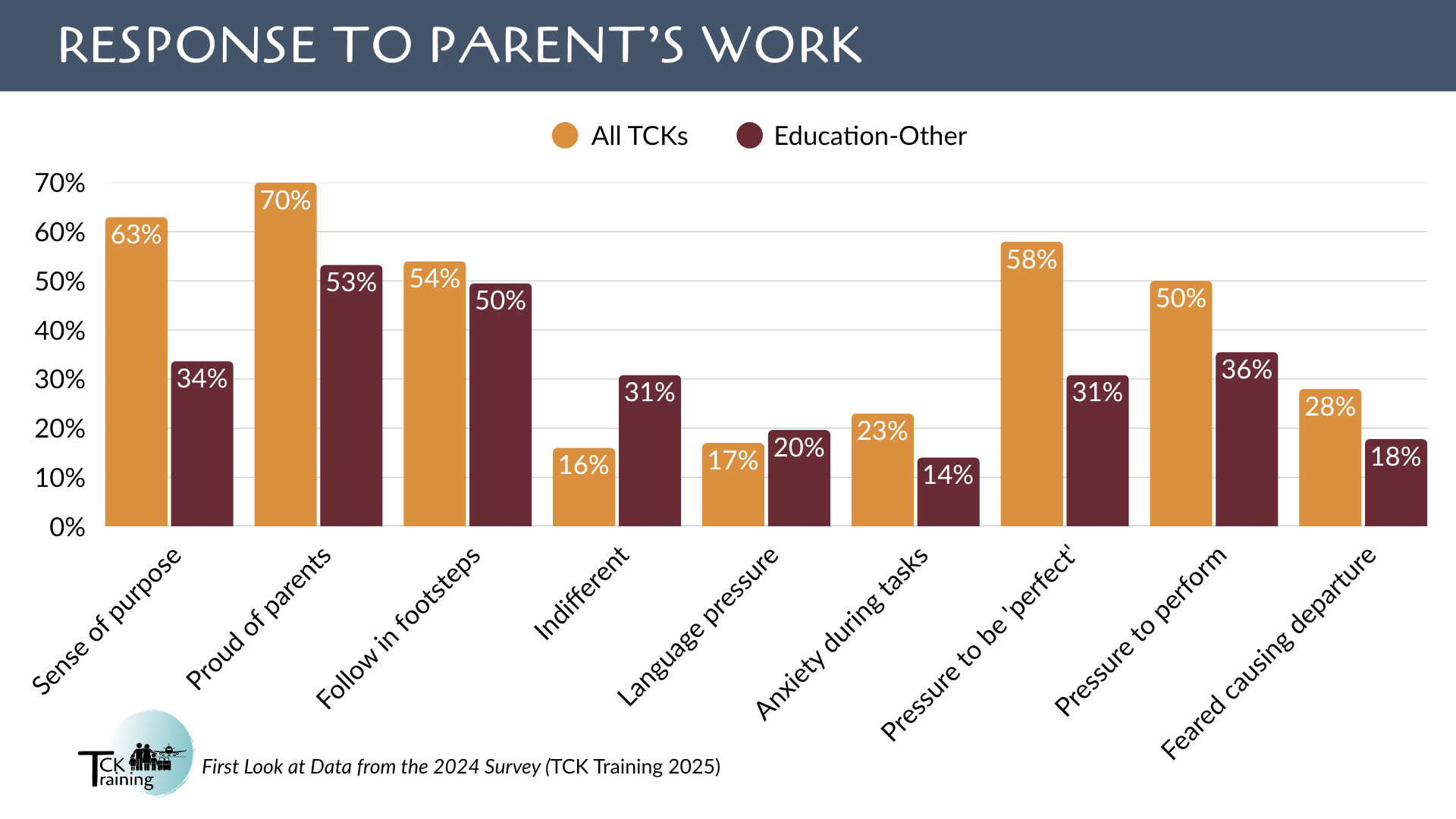
Strengths and Struggles in Adulthood
Strengths
- 87% of Education & Other TCKs identified Compassion as a strength
- 85% of Education & Other TCKs identified Empathy as a strength
- 81% of Education & Other TCKs identified Open-Mindedness as a strength
- 61% of Education & Other TCKs identified being Self-Motivated as a strength
- 55% of Education & Other TCKs identified having Goals & Aspirations as a strength
In addition, 84% of Education & Other TCKs identified being a Bridge Between Cultures as a strength, 77% of education & other TCKs saw Adaptability as one of their strengths, and 68% of Education & Other TCKs identified Resilience as a strength.
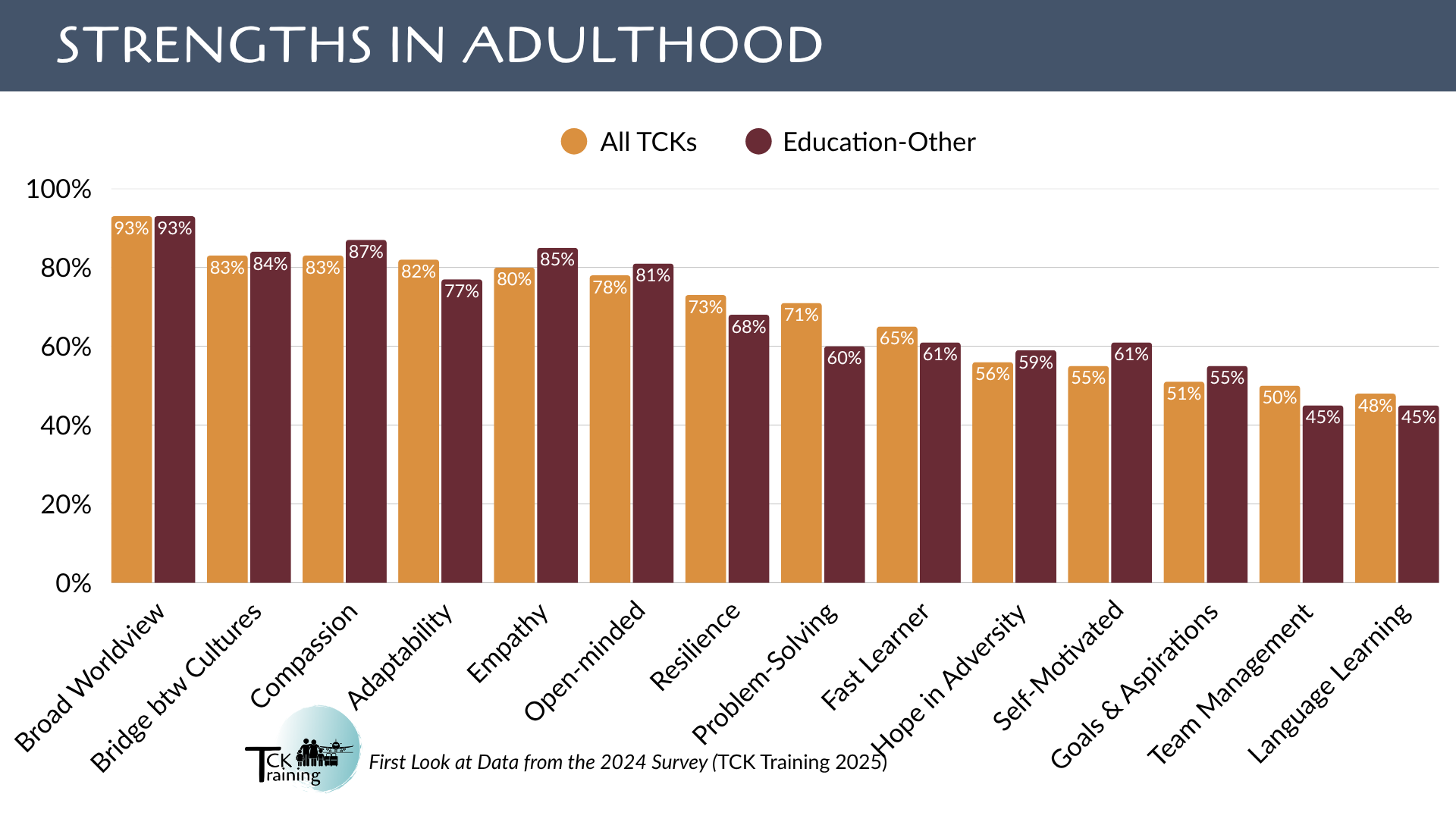
Struggles
Education & other TCKs' greatest areas of struggle included:
- 76% of Education & Other TCKs had trouble belonging
- 60% of Education & Other TCKs experienced identity uncertainty
- 50% of Education & Other TCKs experienced "itchy feet"
- 48% of Education & Other TCKs had difficulty naming their own feelings
- 46% of Education & Other TCKs experienced unresolved grief
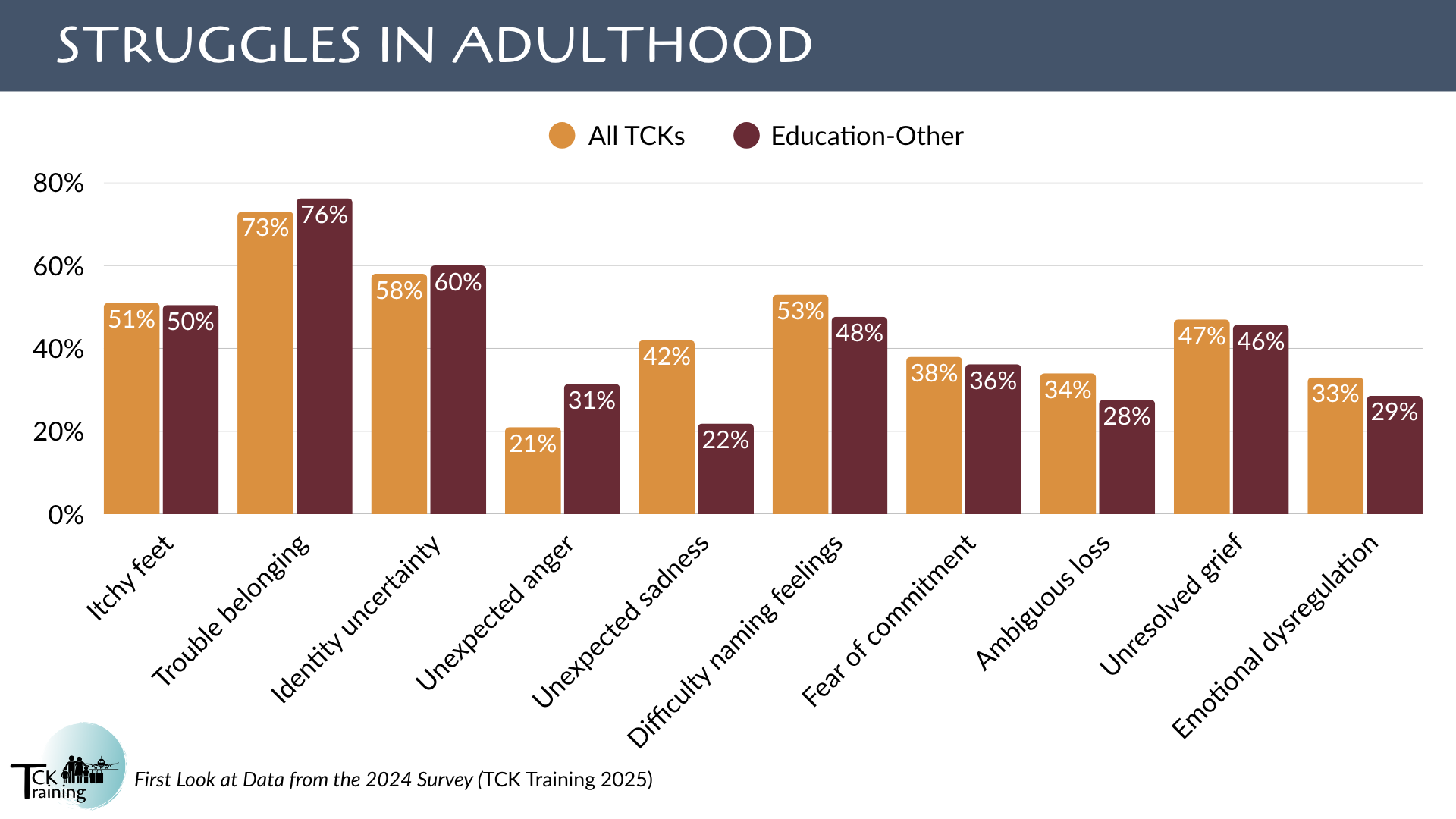
Mental Health
Mental Health Concerns in Education & Other TCKs
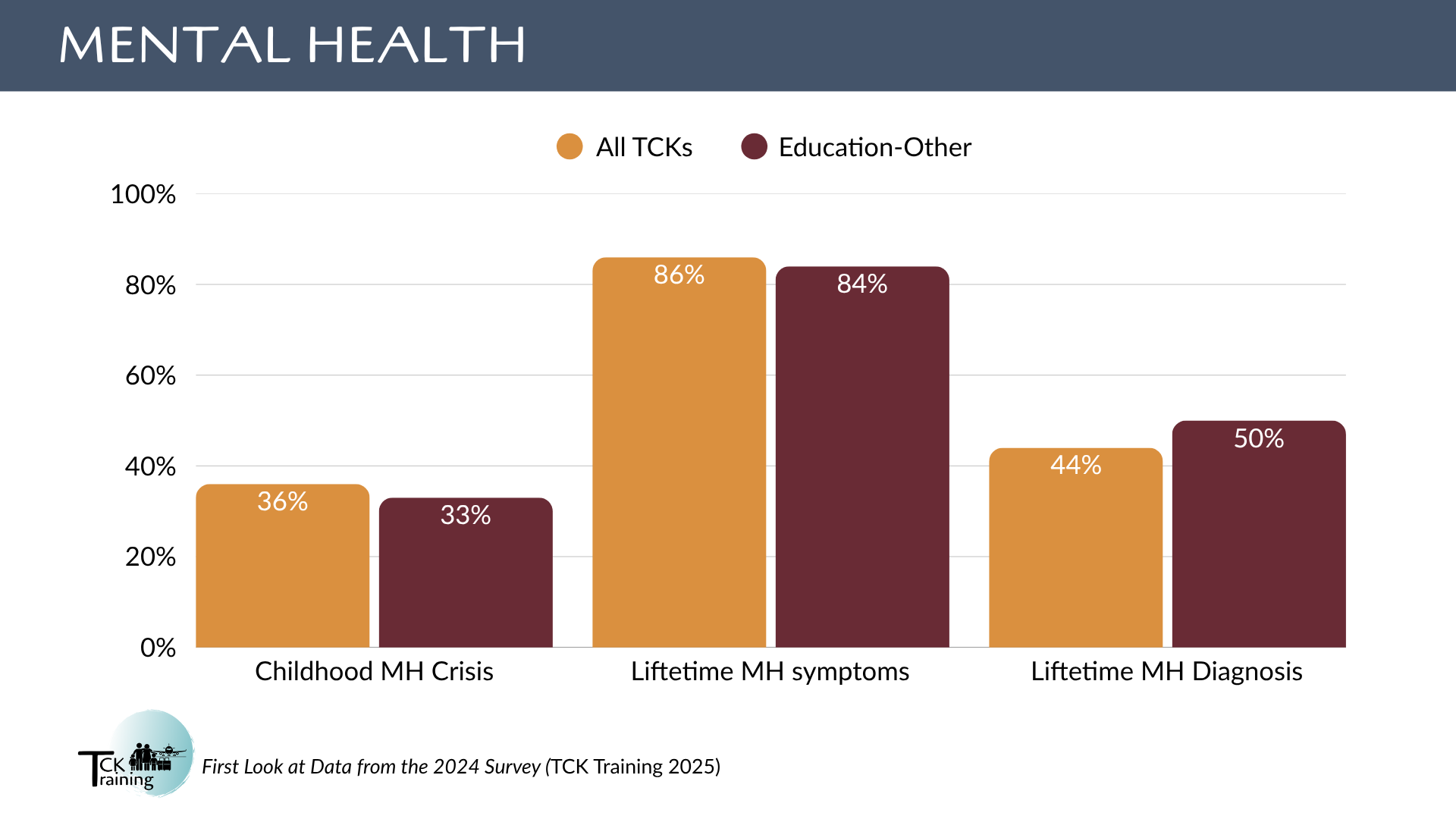
Symptoms of Mental Ill Health
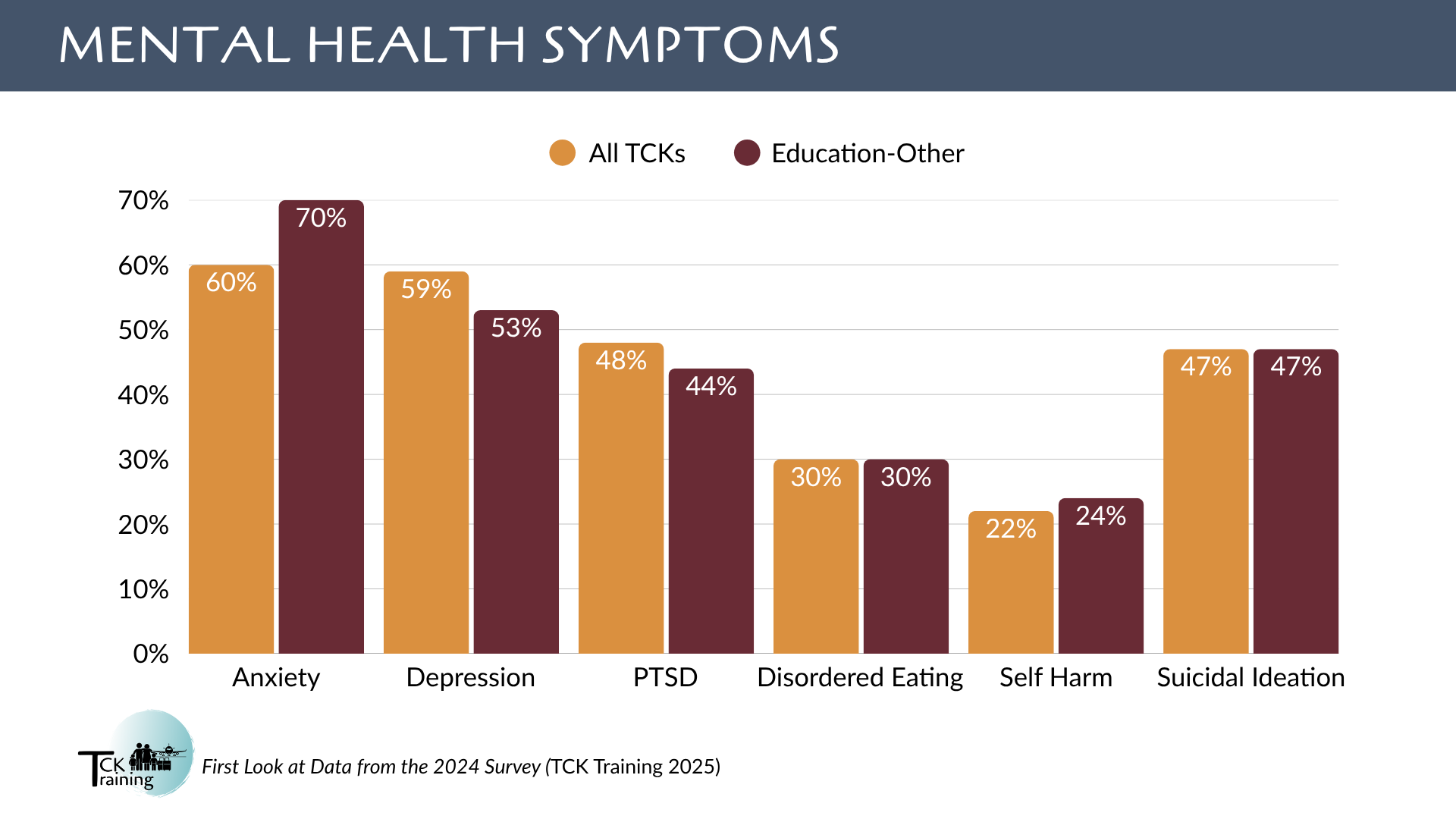
Diagnoses of Mental Health Conditions
The lower diagnosis rates for other conditions is not necessarily a good thing. Nearly a third of Education & Other TCKs answered the screening question for disordered eating in the affirmative, saying they had engaged in these practices - but only 23% of these received a diagnosis. 29% of those who affirmed that they had self harmed had been diagnosed. Only 19% of those who experienced suicidal thoughts were diagnosed.
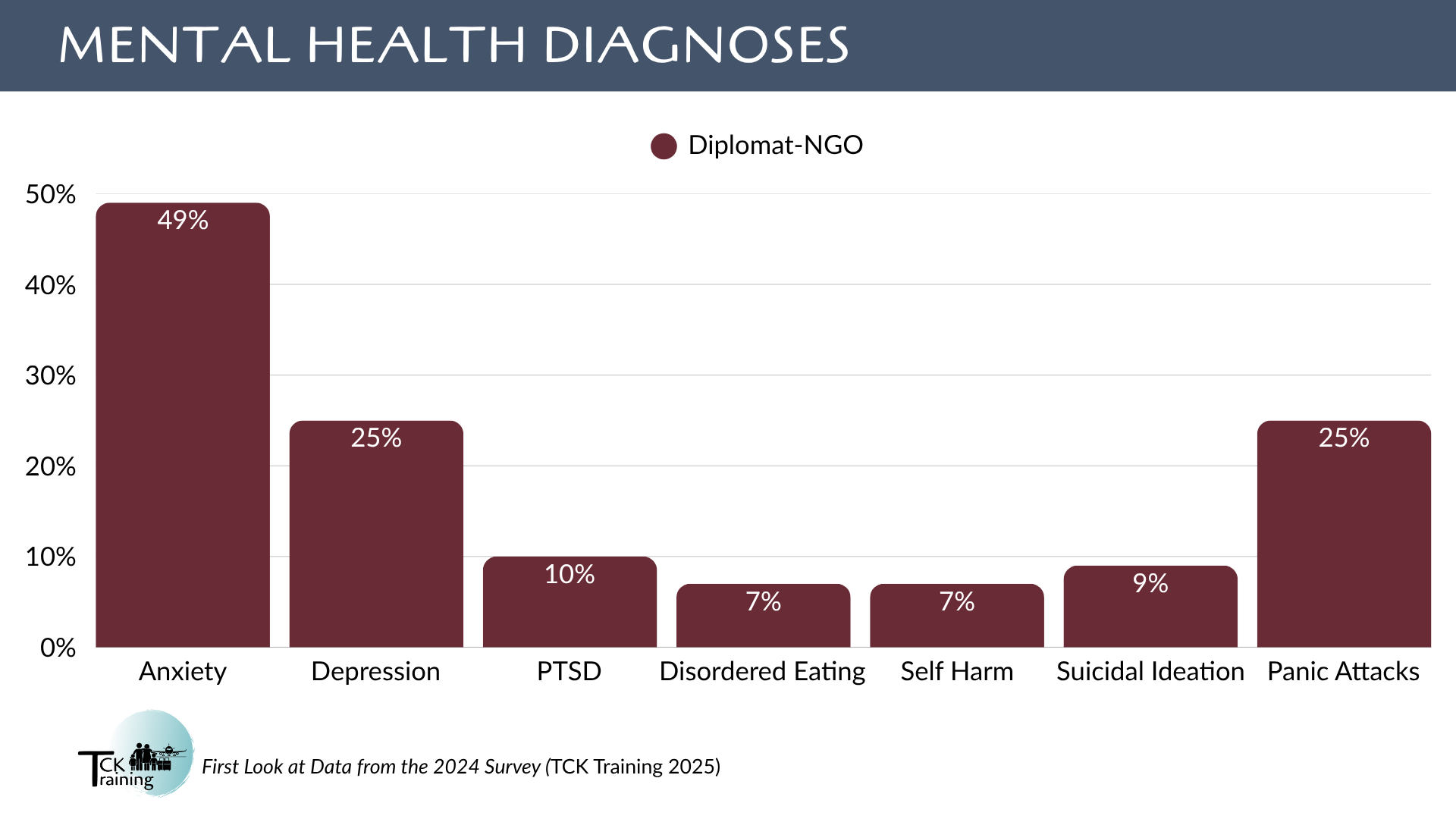
Implementing Effective Support
The first step is simply acknowledging that the stress of international moves has a deep impact on families and the relationships between parents and children.
For Schools Receiving Educators
While schools are often communities in themselves, incoming teachers and their families need more than logistical support and a few new friends when relocating abroad. They need information about the new life they will be leading, the risks involved for their family long term, and how to thrive.
Those working in HR and relocation services for international schools to support these families can be trained to understand the specific issues they face beyond logistics and into the future. Our caregiver membership and certifications are a great place to look for answers. Additional supports can also be outsourced, and families can be provided with their own library of resources.
For Parents of TCKs
TCK Training also offers a range of free resources to help families get started with tools to support their children through the stresses of international life.
For Adult TCKs
As a TCK you can receive support directly – no matter how old you are, and how long ago you lived abroad. There are a range of Unstacking resources to help you process your experiences and how they’ve shaped you. There is the Unstacking book, coaching sessions, and a self-guided course. Learn more about these and other resources here!
What's it like being an international school teacher's kid?
Related Blog Posts
For HR, Relocation Teams & Other Care Providers:
When a person takes a job in their field abroad, there is a huge range in what kind of support is offered to them and their family. When bringing in an employee from overseas, it is crucial that HR teams think beyond the logsitics and provide information and support to help the family thrive.
Those working in HR and relocation services to support these families can be trained to understand the specific issues they face beyond logistics and into the future. Our caregiver membership and certifications are a great place to look for answers. Additional supports can also be outsourced, and families can be provided with their own library of resources.



